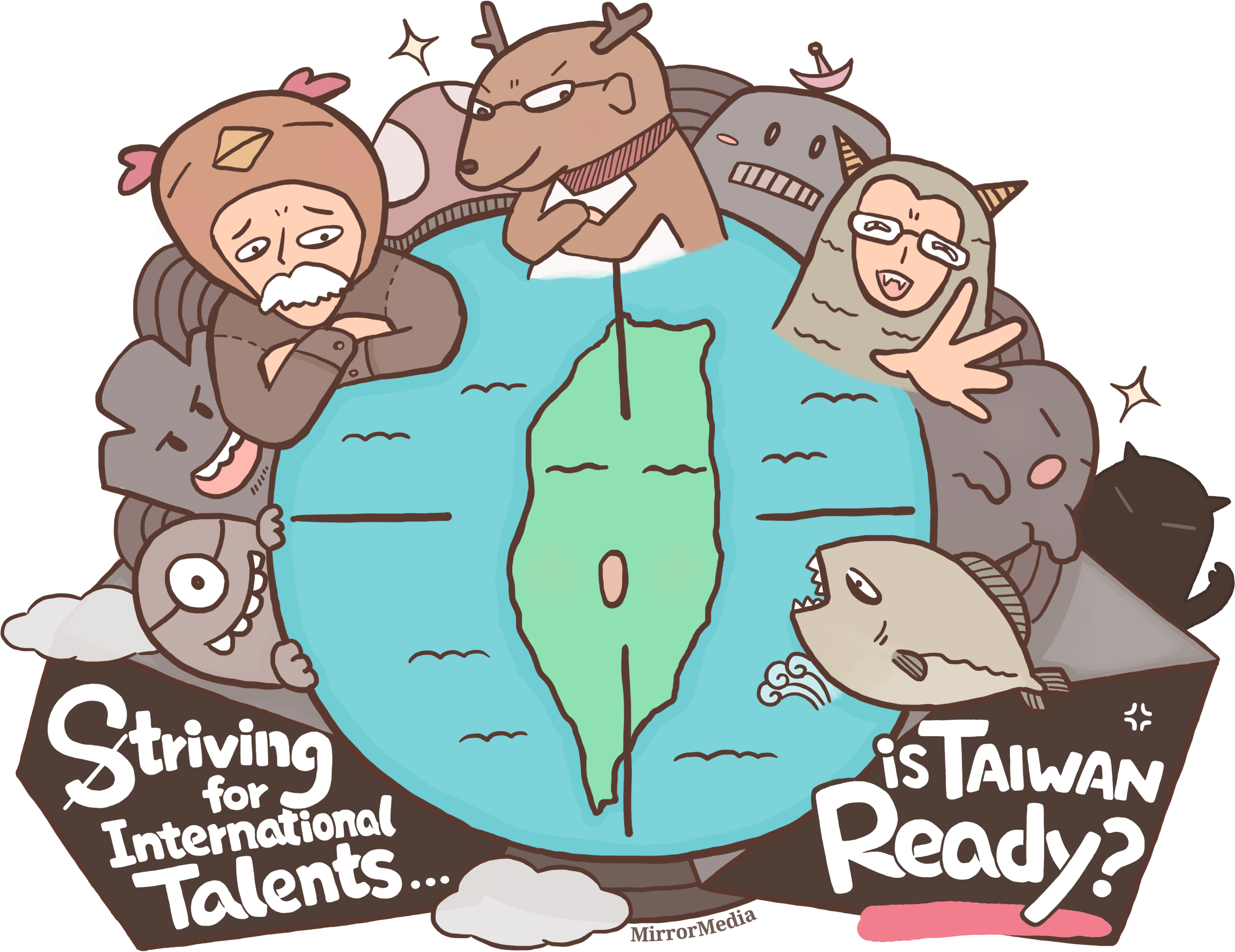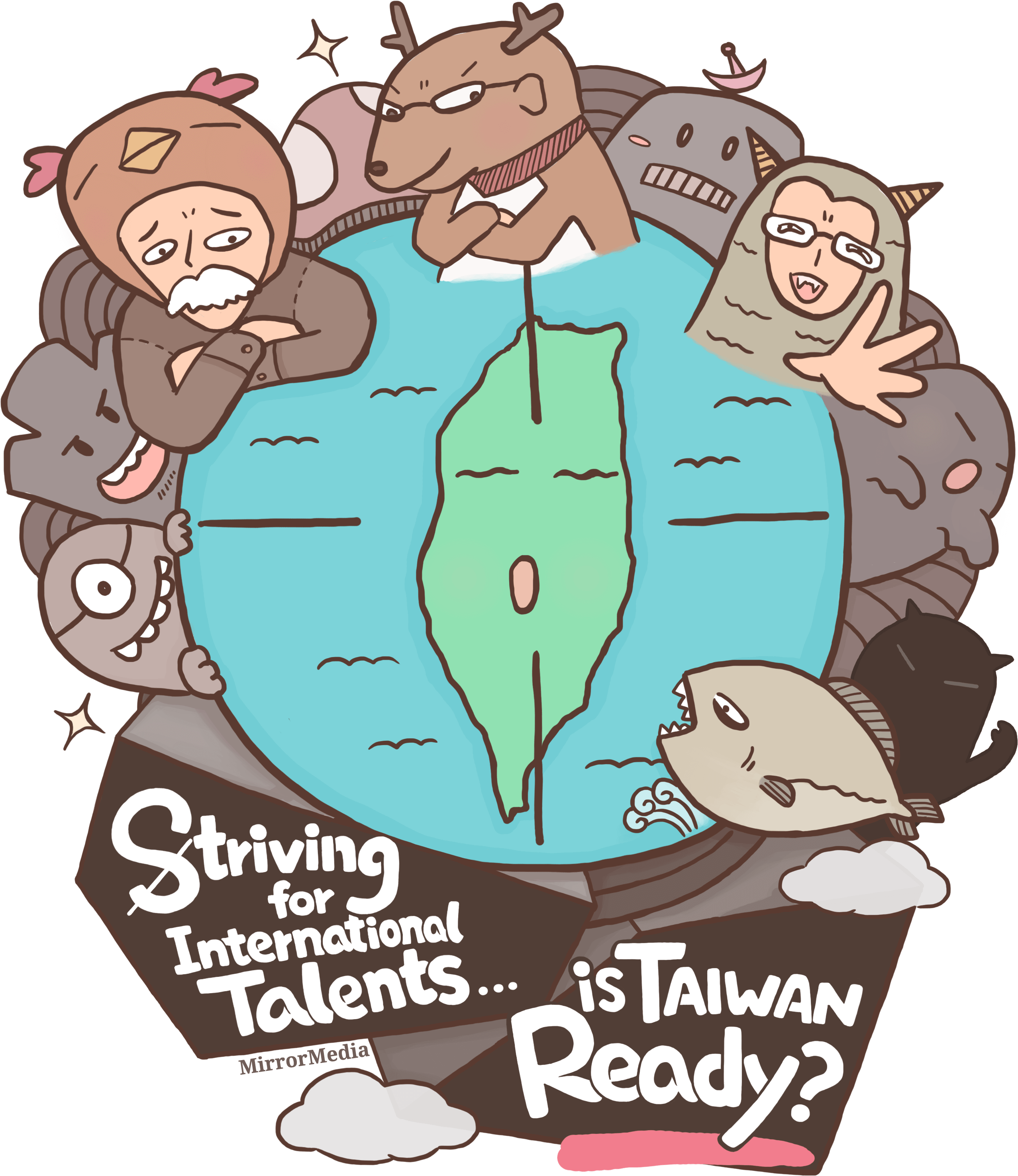



Taiwan now stands no chance in competition. You just can’t imagine the survivability of the Chinese people. They will give up anything to protect themselves by earning more money. However, I do not hope Taiwan become like this. We must ask ourselves, “What kind of country and society do we want to build?” I often thinks, if Taiwan is to be unified and lost in our generation, how will people think of us after a hundred year?
If you have a green card in America then you are almost like a citizen. But in Taiwan, you cannot buy a house or apply for credit cards if you have no citizenship. There are many restrictions when buying insurance too, and some banking services are only available to citizens. When the Ministry of the Interior asked me why I want to be naturalized when I have permanent residency, that was how I answered. There are some sectors that only follow their own customs, even on matters for which there are regulations.
I know many foreigners having good jobs in America and Canada. They probably live in small cities and have a good paycheck but were doing boring jobs and have a boring life. But if you come to Taipei, life becomes more colorful, a life extremely cosmopolitan, a life living in glamour. They came to Asia for this. If you live in Canada or America, you will have an impression that big cities in Asia are like this. Fast pace, countless skyscrapers, delicious food, and interesting culture. They may have dreamt for their whole lives to come to places like this.
I actually don’t believe this Act can solve our problems on finding talents. I am really skeptical. Just like our attempt at entrepreneur visa in the past, where we thought there would be two thousand applicants and it turned out to be less than a hundred. We need to learn from our mistakes. What have we done wrong in that process? It cannot be solved by simply passing an Act. I believe it is a matter of national security and competitiveness. This is not my Act, I never insisted on internship or any such aspects.
All these other provisions seem trivial. You can tell what they really want is the internship in article 19. The other problem is the tax-benefits part. In other international cases, internship always causes big problems with its many loopholes, so we shouldn’t agree to this provision. What is really disgusting about this draft is this: it deals with people, but only considers white-collar workers as people. Why is that?

The debates and arguments never ceased from the very beginning of The Draft, since it concerns the competitiveness of Taiwan, demands form emerging industries, residence permit for foreign professionals, and the protections on domestic laborers. It will be difficult to reach common consensuses upon this issue.
Opinions pro The Draft to be passed claim that, it is an urgent issue for Taiwan to upgrade to higher competitiveness. Meanwhile, the number of foreign professionals and foreign still studnet interns is not a big group in Taiwan anyway. It will have little impact toward the domestic labor environment.
On the contrary, voices against The Draft blame the foreign internship system for dragging domestic wage down, which might even become a loophole for labor abolishment. They also claim that the real problems in Taiwan are low salary and limited prospects for labors, as well as the slow pace of industrial upgrading. Therefore, the real solution is to solve structural problems first.
If as what Yu Wan-Ru said, the main function of The Draft is to solve problems which foreign national professionals might come up with, the debates from two parties do not really converse. In fact, even for those who still hold concerns about The Draft, they did not oppose simplifying application process or letting foreign workers acquire Employment Gold Card. The real battleground lies in government giving out tax benefits, One-Year Employment-Seeker Visa, and Internship system to foreign workers. If Yu’s claim is true, the governemnt could include more discussion on not controversial articles, The Draft could sound feasible for both parties, eventually put the law into practice.
However, the key issue within The Draft is that it does not seem to guarantee to fundamentally solve Taiwan’s brain drain and enhance motives to attract foreign white collars, which are the real possible solutions to improve Taiwan's global competitiveness. This is also what all private sectors expect the government to offer. How long would we still have to wait to see the practical solution that could really bring about change?
Most important of all - even though The Draft may not solve all the troubles we are encountering, it must not become another troublemaker itself.
Written: Jhong, Sheng-Syong
Translated: Chang, Su-Hau and Jhong, Sheng-Syong
Web page: v_k and KC-TWNo1
Release date: 2017.09.18









